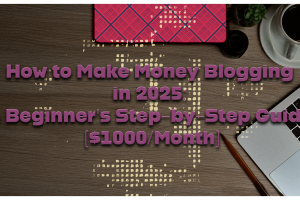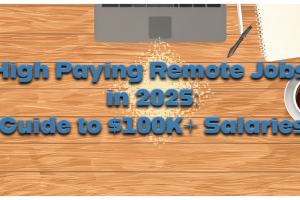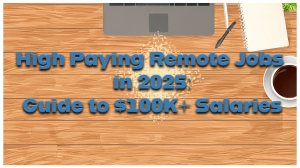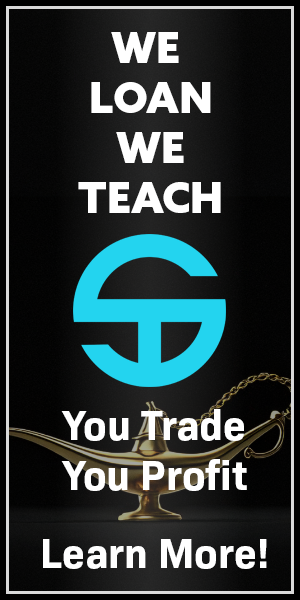Finding the right mortgage for your first home can be a daunting process. With so many different lenders and products to choose from, it can be difficult to determine which mortgage is best for you. Knowing which type of mortgage to select, what fees to expect, and how to find the lowest rate can be a challenge. In this post, I will provide you with the information you need to make an informed decision when finding the right mortgage for your first home.
Determine your budget
Finding your first home can be an incredibly exciting but also overwhelming experience. A plan is essential so you don’t get in over your head. The first and most crucial step is determining your budget. You ought to understand how much you can afford to spend on a home and how much you can comfortably afford to pay in monthly mortgage payments. Once you know your budget, you can look at homes in your price range.
Look at various homes in different neighborhoods to see what is available. If you are working with a real estate agent, they can help you find good deals and help you negotiate on price.
It’s essential to look closely at the home’s condition and ask lots of questions about any potential issues with the house. When finding your first home, you must consider several factors. Make sure you take your time and research so you can find the perfect place for you. You can find a great home that fits your budget and lifestyle with the right plan.
Research loan options
After determining your budget, the next step when finding your first home is to evaluate your financial situation and determine how much of a loan you can afford. When calculating, it is essential to consider your current income, credit history, and other debts. Once you have determined the amount you can comfortably afford, you can begin researching your loan options.
There are various loan options available, from conventional loans to government-backed loans. Depending on your circumstances, some loan options may be more beneficial than others. For example, those with limited income may qualify for government-backed loans with lower interest rates. Additionally, those with a strong credit history may get a lower interest rate through a conventional loan.
When researching your loan options, comparing the interest rates, loan terms, and any additional fees associated with each option is essential. Read the fine print before signing the loan agreement and ensure you fully understand the terms before committing to a loan.
In addition to researching loan options, saving money for a down payment is essential. Depending on your loan type, you may need to provide a down payment of 10-20%, which will reduce the loan amount and provide additional savings in the long run.
Finding your first home can be daunting, but researching loan options and determining the best way to finance your purchase can make the process easier. Take the time to evaluate your financial situation, compare loan options, and save for a down payment, and you will be well on your way to finding your perfect home.
Compare mortgage lenders
Consider working with a mortgage broker; this is a great way to compare multiple lenders and find the best deal. Mortgage brokers have access to lenders and loan products that may not be available to you otherwise and can help you find the right loan to fit your needs.
A few types of mortgage lenders are available for people that prefer to work directly with a lender, such as banks, credit unions, and mortgage lenders, who all offer different terms, rates, and products. The best way to compare lenders is by shopping around so you can compare offers from multiple lenders.
It’s essential to look closely at the terms and conditions offered by each lender. Make sure you know the interest rate, fees, and other loan terms before you make a decision. Also, consider the lender’s reputation and read reviews from other customers to get a feel for the company.
Once you’ve compared lenders and found the right loan for you, your next step is to apply for the loan; this can be done in person in the lender’s office, online, or over the phone. You must complete the application with all the required documents, such as proof of income and identification.
No matter which lender you choose, finding your first home is an exciting step in your life. With some research and comparison shopping, you can find a lender that will provide the best terms and rates for your needs.
Get Pre Approved
Getting pre-approval for your mortgage is one of the best ways to ensure you’re in the best possible position to secure your desired home.
Getting pre-approved for a mortgage is crucial when looking for a home for the first time. Having pre-approval indicates that you are a qualified borrower and that your lender has already determined the maximum amount for which you can qualify for a mortgage loan. Knowing this amount before making an offer on a home provides a good indication of the prices of homes you can afford and negotiating power when you make an offer.
There are plenty of resources to help you in the pre-approval process. Your lender or mortgage broker can advise you on the different types of mortgages available and which option would best fit your circumstances. You’ll need to provide documents such as bank statements, pay stubs, tax returns, and your current credit score assessment, and having this information ready in advance will help make the process quick and efficient.
By taking the time to get pre-approved, you’ll have the confidence of knowing that you’re a qualified borrower and have a better idea of what you can afford; this can give you a huge advantage when making offers in a competitive market, as well as helping make the entire process of buying your first home a little less daunting.
Research down payment assistance programs
Coming up with the money upfront for a down payment can be difficult. Fortunately, several down payment assistance programs are available for buyers wanting to purchase their first home.
You can find these programs through various sources, such as city and state government agencies, employers, non-profit organizations, and other financial institutions. Depending on the program, a down payment assistance program may provide a one-time grant, loan deferment, or a loan forgiveness program. Before looking into any of these programs, it is essential to review any eligibility requirements that may be associated with them.
For those trying to buy their first home, a down payment assistance program can be a great way to start that process. With the proper research and planning, you can find the program that will work for you and make the transition from renter to homeowner.
Negotiate the best rate.
When you are ready to purchase your first home, negotiating for the best rate can be difficult. It is essential to be prepared and understand the different aspects of the negotiations to come away with the best possible rate for your home.
The most important thing to remember is to be patient. There are a lot of different variables that contribute to the price of your home, and it is only through taking the time to understand each of these aspects that you can effectively negotiate a deal. A real estate agent with experience can help you through this process, so it is undoubtedly beneficial to seek their advice if you are new to the negotiating process.
It is vital to assess how much the property is worth; this is the basis of any negotiation, and you need to understand the property’s value to evaluate and negotiate the rate effectively. Additionally, understanding the market value should help you know the state of your area’s economy and give you direction on what you can expect to pay.
Once you understand the property’s rate and value, it is time to approach the seller with an offer. Be sure to consider the seller’s needs and expectations as you negotiate, and remain respectful, firm, and persistent throughout the process. It is essential to be fully aware of your budget and remember the costs associated with closing and the mortgage.
Last, be prepared to leave the deal if the seller is unwilling to negotiate to what you expect. It may be frustrating for some, but sometimes it is the only way to ensure you get the best deal. For this reason, you must clearly understand the real estate market and be willing to make tough decisions during the negotiation process..
Conclusion
By understanding the market and being patient and prepared during the process, you can effectively negotiate the best rate for your first home. With the right attitude and knowledge, you should find a great deal that works for you and the seller. Disclaimer













